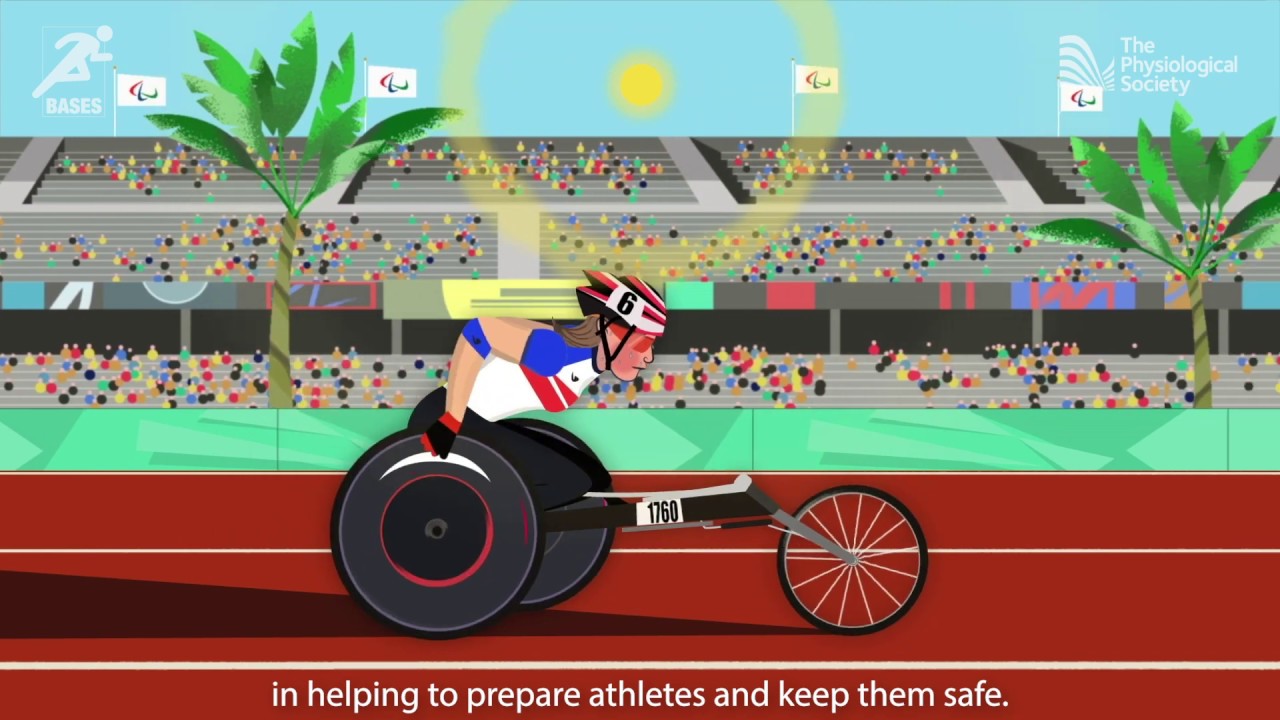Sports Science - When Sports Meets Science To Boost Athletes
"Sports science" refers to the multidisciplinary study of important sciences.
Today's athletes are more powerful and faster than ever before.
Take a look at athletes who play baseball or football, sprinters or swimmers, or just the countless world records that are broken at the summer Olympics every four years.
due to the fact that sports change with time.
We look at the various ways that science is influencing sports.
We learn about high-tech accessories and tools, such as running shoes with soles made of highly designed foam, and we learn how neuroscientists are attempting to gain access to athletes' minds in order to evaluate their performance
Sport Sciences
The study of sports science relies heavily on four main sciences.
These are employed across the range of sports activities in the majority of high-quality degree courses.
They are physiology, psychology, motor control and learning, and biomechanics.
Sport and exercise scientists may create, monitor, and analyze training programs to help athletes and coaches attain their full potential by studying how humans function.
In addition, they might research the movement dynamics of a full-in double-back somersault in gymnastics, the movement patterns of a child learning to walk, the psychological benefits and barriers of exercise in sedentary people, the psychological strategies employed by Olympic champions, and the physiological reactions to exercise from a healthperspective.
The study of how physical activity might aid in the prevention and treatment of serious chronic diseases such as rheumatoid arthritis, cardiovascular disease, obesity, diabetes, cancer, and osteoporosis is another area of expertise for many sports and exercise scientists.
Main Pillars Of Sport Sciences
Psychology
The psychological demands of physical activity might impact a person's ability to succeed and perform at their best.
Performance can be impacted by taking psychological aspects into consideration.
Physiology
Physiology takes into account the way the human body responds to physical activity and training.
Biometrics
The science of monitoring and analyzing biological data, such as hormone and glucose levels, is known as biometrics.
The health and vitality of those who monitor this data can be improved.
Motor Skills/education
Humans can organize their motor talents through motor control or learning. By developing motor control, people can move quickly and precisely while using less energy and avoiding harm.

What is sport and exercise science?
Sports Science And Physical Education
Schools, athletic associations, and recreation agencies all use sports science. New athletes as well as regular people are being trained using this technology.
The way people exercise has changed thanks to sports science. People can now obtain information on endurance, performance, technique, and other topics.
Performance can be enhanced by comparing this data to earlier data.
Sports Science Aids In Injury Prevention
Sports and exercise-related injuries happen far too frequently. If someone gets hurt badly, they may not be able to do much for a few months and may have more problems in the future.
Sports science has considered every method for preventing unnecessary injuries. With the right information and precautions, most injuries can be prevented.
Utilizing sports science to stop injuries, you can:
Stretching
To help prevent injuries, your muscles need to be stretched both before and after exercise. Stretching must be done properly to be successful. Stretching that is insufficient for your workout can really do harm.
Cooling Off And Warming Up
Your body is more prepared for activity and physical training after warming up.
A warm-up helps your muscles and joints become more flexible while gradually raising your heart rate.
The need to calm down is equally crucial. It gradually lowers your heart rate.
Suitable Training
Injury can be avoided by following a good training regimen based on your physiology and performance objectives.
Get a Private Exercise Consultation to help you decide how to increase your performance in the sport or exercise of your choice.
Build Up Your Workout Slowly
To avoid injuries, begin slowly and gradually increase duration and intensity.You can choose and use your training levels more effectively if you have VO2 Max and threshold testing done.
Change Up Your Workout
Overusing and injuring the same muscles can result from repetitive use.
To avoid doing the same exercise every day, mix it up.
Suitable Nutrition
A healthy dietis essential for an effective workout.
You can speak with one of our nutritionists about the best diet for your physiology, objectives, and training.
Adequate Recovery
In order to avoid harm, recovery is essential. Inadequate recuperation might result in injury and reduced performance.
Speak to one of our exercise physiologists about your specific needs for rehabilitation.
Psychiatric Restoration
Your mental health can benefit from psychological rehabilitation practices like massage, spas, and hot showers.
Recovery is greatly influenced by mental health.
Therefore, it's critical to make sure you enjoy your workouts rather than dread them because this can cause weariness and damage.
Be Aware Of Your Body
The adage "no pain, no gain" is untrue. Never disregard your body's signals. If you are in pain, you might be doing harm that could be prevented.
When starting a new exercise routine, it's important to know what kind of pain is normal and what isn't.
Exercise For Health Benefits
Since ancient times, people have believed that exercise had a wide range of advantages, particularly for their health.
Finding interventions that will benefit patients while having the fewest negative effects and reactions is important for doctors because their conventional focus is on illness prevention and the maintenance of health.
Only recently has the emphasis switched to treating patients' complaints and acute illnesses.
In any event, doctors have nearly always emphasized a routine that includes nutrition and exercise.
Even in the development of their remedies, ancient physicians understood the significance of these two caregiving facets.
According to this thinking, preventing disease from starting may be a better medical strategy than treating people as it develops.
On the whole, modern diseases are preventable. Additionally, playing sports considerably lowers the risk.
People Also Ask
What Do Sport Sciences Do?
They review coaching, training, competition, and rehabilitation methods at all levels and in all sports through evaluation, research, assessment, and advice.
A sports scientist will work with both teams and individual athletes to help them get ready for competition.
Is It Worth Doing A Sports Science Degree?
Unsurprisingly, graduates in sports science often find employment in the sports and fitness industry, particularly in coaching and teaching, but they can be found in various sectors of the economy.
Since this major is for people who wish to inspire others, management is another popular career choice for graduates.
What Qualifications Do You Need For Sports Science?
You might consider enrolling in a sports and exercise science program.
Your career prospects will be wide open if you take courses in the three foundational disciplines of biomechanics, physiology, and psychology.
You could also get a bachelor's degree in a science-related field and then get a master's degree in sports science.
How Do I Become A Sports Scientist?
You'll need either a postgraduate degree or a lot of professional experience to become a sports scientist.
A postgraduate degree will be required for careers in research, physical therapy, and teaching.
A master's degree may also be required for positions in nutrition or athletic psychology.
Conclusion
Sports management, motor control, physiology, biochemistry, and biomechanics are just a few of the numerous disciplines that are incorporated within sport and exercise science (SES), which is a field with a huge range of applications.
There is something for everyone given the variety of topics. And you can learn more with articles from Science (Science Journal), Ligadeportiva (Sports Journal) or Open Access Publishing London (Research Journal). Click hereto keep learning and to have more opportunities to enter into this career.

